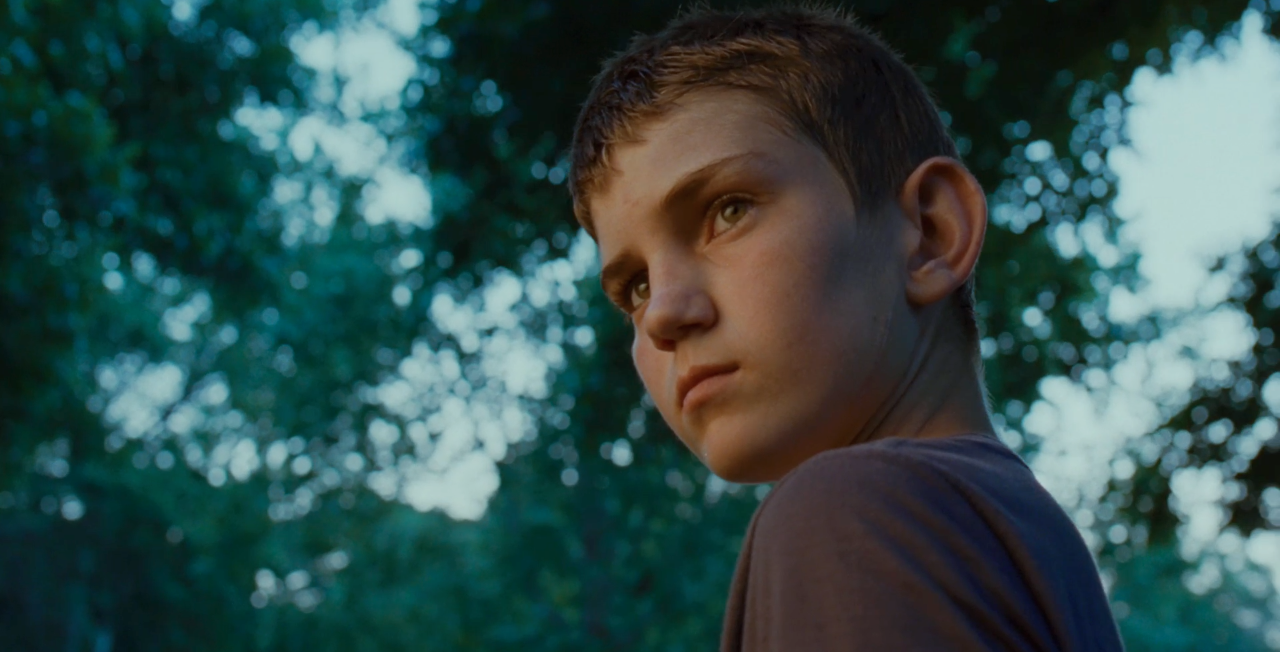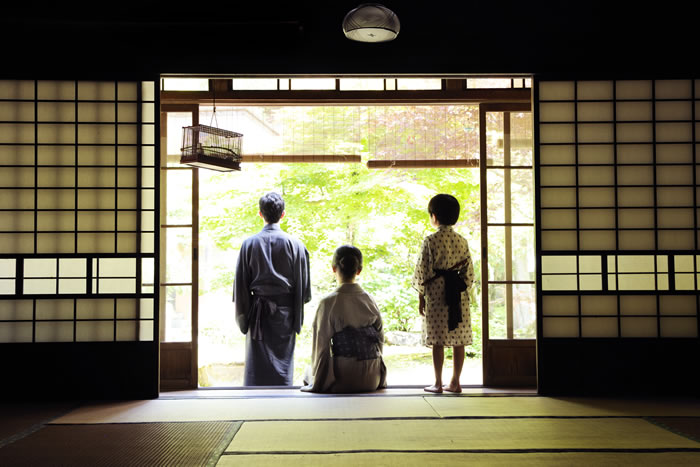I spent the last year watching some older stuff, filling in a few gaps, and catching up on films I had always wanted to see. Here's what I came up with -- my list, the several hands full that reminded me of why I continue chasing cinema past:
Michelangelo Antonioni's The Passenger (1975)
Antonioni's incredible talents are all over -- his meticulous framing, his daring yet languid camerawork, and his feel for spaces that the medium somehow forgot to cover. Slow and cerebral like all his work, The Passenger separates itself from the rest of A's films with its summer exteriors and rustic locations. It's simply one of the cinema's truly great road movies.
Robert Altman's Thieves Like Us (1974)
The most sexually-charged of the Altman pics I've seen, and certainly one of the most interesting. Feels like a pet project, extremely unconventional stylistically just like McCabe. And strange as it may seem on paper, a precursor to Michael Mann's free-form stylings on Collateral, Miami Vice, and Public Enemies.
Corneliu Porumboiu's Police, Adjective (2009)
The new Romanian cinema has gotten much acclaim of late, and after seeing 4 Months... and this film it's easy to see why. What's so striking is its fresh naturalism, running in such a different direction from cinema's other reigning naturalist champ, the Dardenne brothers. Unlike the handheld close-ups populating the work of the Belgian brothers, Porumbiou keeps the camera fixed and in wide frames. He also favors long takes in a way that we rarely, if ever, see in the work of the Dardennes. Other than the final ten minutes, I'd have no hesitation declaring it one of the greatest of recent films, and a full-blown masterpiece.
Jacques Tourneur's Canyon Passage (1946)
Sam Peckinpah's Pat Garrett and Billy the Kid (1973)
A loose, mournful western from one of the late masters. Peckinpah meanders, ponders loyalty and lost ideals, and delivers what might be the most personal of all his works. The loss of a lifestyle, the onset of civilization, and a western about not fitting in, that doesn't really fit into anything that's come before or since.
Terrence Malick's The Tree of Life (2011)
Hirokazu Koreeda's Still Walking (2008)
The third of the director's films I've seen, and he continues to rank among my favorite of all the contemporary Asian filmmakers. Koreeda's undeniably a humanist, and as his with other two films, there are moments that carry a tremendous amount of power. Not perfect, I particularly found a little fault with the saccharine nature of some of the score. But all in all a memorable effort from one of the few directors still carrying Ozu's torch.
Werner Herzog's Fitzcarraldo (1982)
Part of that unique genre, the "extreme film", along with works such as Apocalypse Now and Sorcerer. These films all show filmmakers willing to travel to dangerous lengths to paint unprecedented canvases and test their own abilities as storytellers and dream purveyors. Herzog's film might feel slightly disjointed at times. But the scope at which he is working and the heart that drives both him and Fitzcarraldo allow the film to rise memorably above any shortcomings. A classic of the genre, and probably about as personal as Herzog's work can ever be.
Wim Wenders' Tokyo-Ga (1985)
An exploration that almost feels like a Godard or Marker essay. An unorthodox, somewhat meandering doc that seems essential viewing for any fan of Ozu's work. Wenders mourns cinema's loss of one of its most special practitioners using Ozu's favorite city, Tokyo, to look at how the world has changed since his passing. Wenders also memorably spends time with some of Ozu's closest collaborators.
Charles Ferguson's Inside Job (2010)
Roberto Rossellini's The Rise of Louis XIV (1966)
The first of Rossellini's historical dramas that I've seen, and admittedly it takes awhile to get used to his later style. But it snakes its way around, accumulating historical import, and by the end, finds its emotional highpoint. Another transcendent and powerful work by one of cinema's most unusual and rigorous stylists.
Maurice Pialat's La Gueule Ouverte (1974)














Jeffry,
ReplyDeleteWhat are your favorites released in 2011? (In addition to "Tree of Life." I saw it once and am still haunted, inspired and frustrated by it.) I think 2011 was very weak overall for film, but were there any, besides Malick's, that stirred your soul?
-c.h.t.
Awesome list, Jeffrey. I absolutely loved Canyon Passage, which I also saw for the first time earlier in the year. I listed Experiment Perilous as my favorite Tourneur discovery from 2011 on my recent wrap-up post, but really it was a coinflip between the two, I was blown away by both of them. I agree with you wholeheartedly that Tourneur deserves the highest of considerations, and this feeling seems to grow for me every time I see something new from him. He was a remarkable director.
ReplyDeleteIt's also pleasantly surprising to see The Rose of Louis XIV show up here, I just happened to watch that one on Christmas night. It was also my first of Rossellini's history movies. Like you said, it takes a bit of time to acclimate yourself to what Rossellini is up to, but the depth of expression he was able to get out of his camera work and the unorthodox performance from Patte made for a pretty haunting experience. It's amazing to think of this as the same director who created the War trilogy; the way constantly reinvented his style has got to make for one of the most fascinating career trajectories in the cinema.
Love the shout-outs for the Peckinpah, Antonioni and Malick, I'm a huge fan of all three. I need to catch up with the others, and I plan on making Pialat one of my big projects in 2012.
Craig, thanks so much! That's a good question about other 2011 faves. I really didn't see very many new releases, but a couple others that I really enjoyed were BRIDESMAIDS and the Michael Rapaport Tribe Called Quest doc. Thanks so much for the wonderful addition here -- hope to see you soon!
ReplyDeleteDrew, thanks so much for the terrific addition here. You have me incredibly eager now to see EXPERIMENT PERILOUS. Like you, "this feeling [that Tourneur was truly something special] seems to grow for me every time I see something new from him."
ReplyDeleteAnd I look forward to hearing your thoughts on Pialat. I guess if pressed, I would cite four or five of his ten films as something truly special. Hopefully, he will come close to ranking similarly for you.
Thanks so much, Drew. Look forward to continuing to hear about your cinematic highpoints and following your wonderful blog. Happy 2012 to you!
This is a magnificent presentation Jeffrey, and I'm sorry I got over here so late to acknowledge it with a response. Needless to say THE TREE OF LIFE is a masterpiece (for me it is the No. 1 film of 2011) and one of the treasures of the new millenium.
ReplyDeleteThe film here from Pialat, Herzog, Rossellini, Kore-eda, Porumboiu and Antonioni are also favorites as is the recently viewed CANYON PASSAGE from Tourneur. Your taste as always is ecclectic and all-encompassing.
Sam, thanks so much for the wonderful comment! I love what you say about THE TREE OF LIFE, "one of the treasures of the new millennium", and I could not agree more.
ReplyDeleteI truly appreciate all your extraordinary guidance in 2011 and look forward to sharing many more unforgettable cinematic experiences in 2012. Sam, all that you do in bringing the cinephile community together is truly an inspiration. Thank you!
Thanks Jeffrey,great list and a couple of films to watch. The Tree Of Life is masterpiece and also Sam Peckinpah's "Pat Garrett and Billy the Kid" ,not so good westerns these days .
ReplyDeleteThanks so much, Printing Man. I really appreciate you stopping by and the great addition here. Come back if you see any of these other ones and want to discuss.
ReplyDeleteI am not die heart fan of Classical movie . But I like to watch romantic classical movies. Well you have best collection of classical movies. I just pick one of them the last one named Maurice Pialat's La Gueule Ouverte (1974). I want to watch online this movie. I will do it on this coming Sunday. Thanks for sharing this collection with us.
ReplyDelete